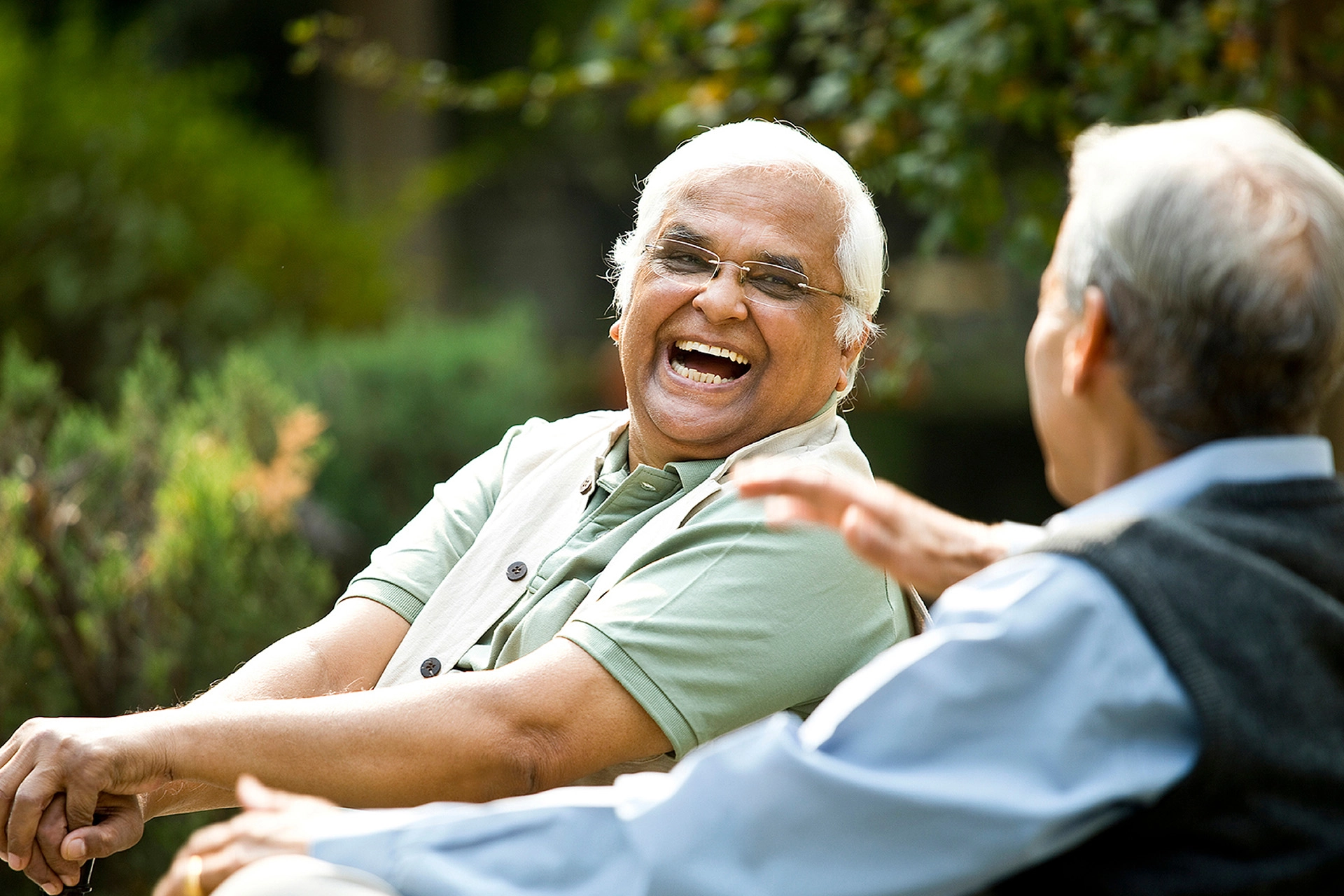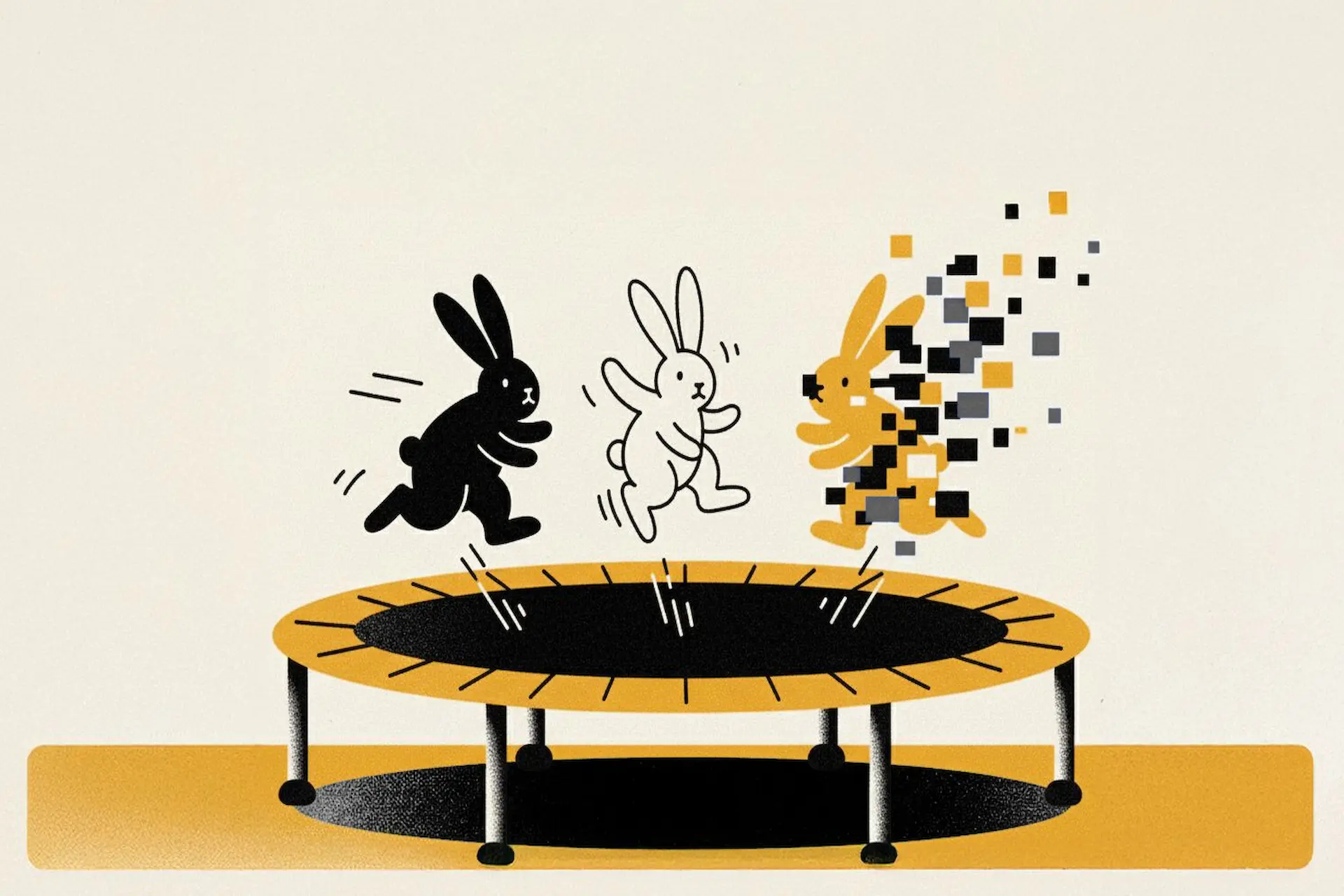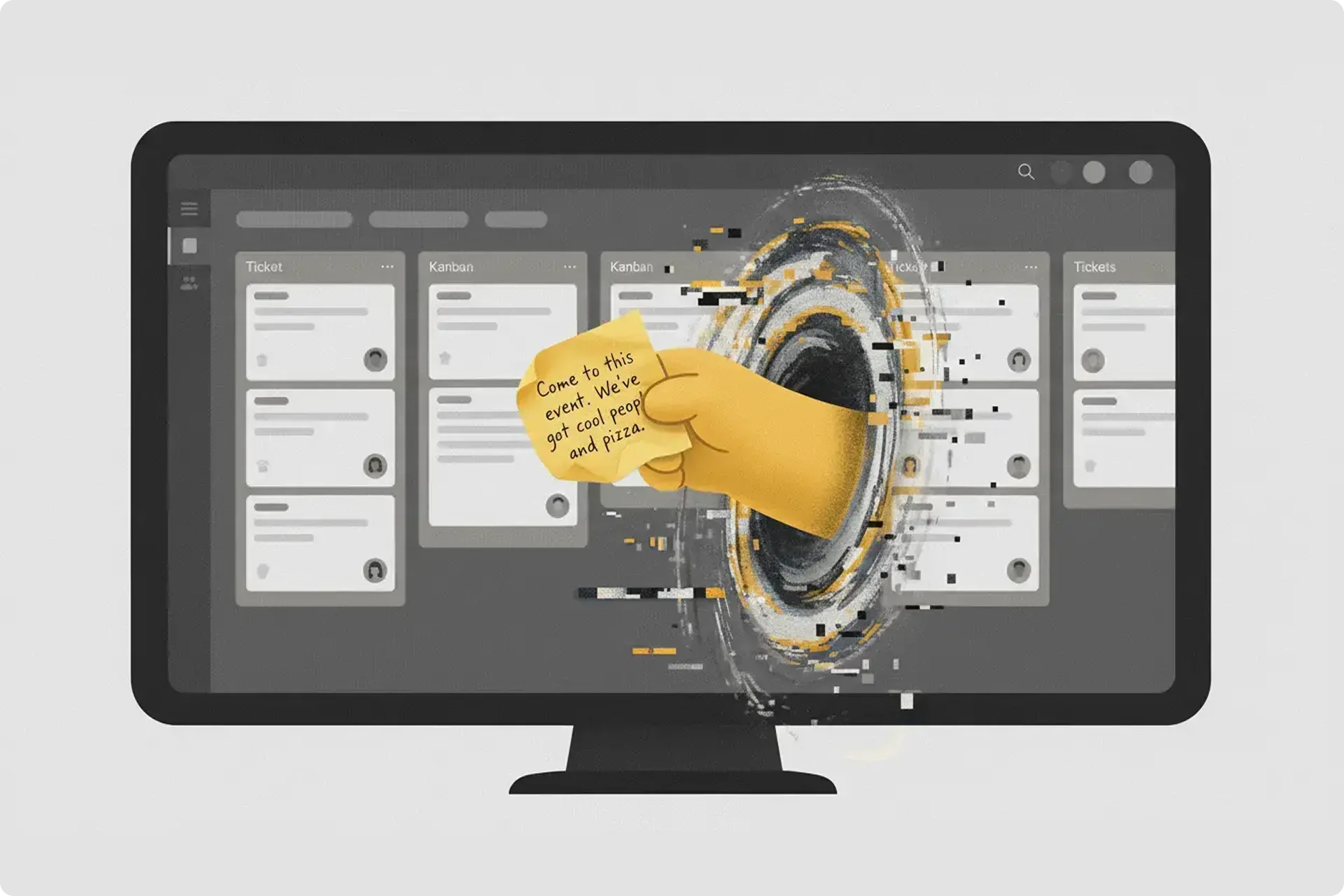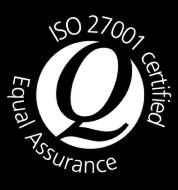“I don’t care who helps me, as long as it’s someone I know.”
This was a simple but powerful comment from a customer we spoke to during our recent work with Annecto, a national provider of disability and aged care services. It was both profound and obvious. In care, relationships aren’t an extra, they’re at the heart of the whole experience.
It’s not just what gets done, it’s who shows up to do it
Despite best intentions, many care models still treat relationships as incidental. Staff changes are seen as scheduling issues, and communication breakdowns are tolerated as part of the process. But for people receiving support—especially if they’re vulnerable, isolated, or under pressure—these moments matter. They can mean the difference between trust and fear. Confidence and confusion. Continuity of care isn’t a bonus. It’s what makes care feel safe.
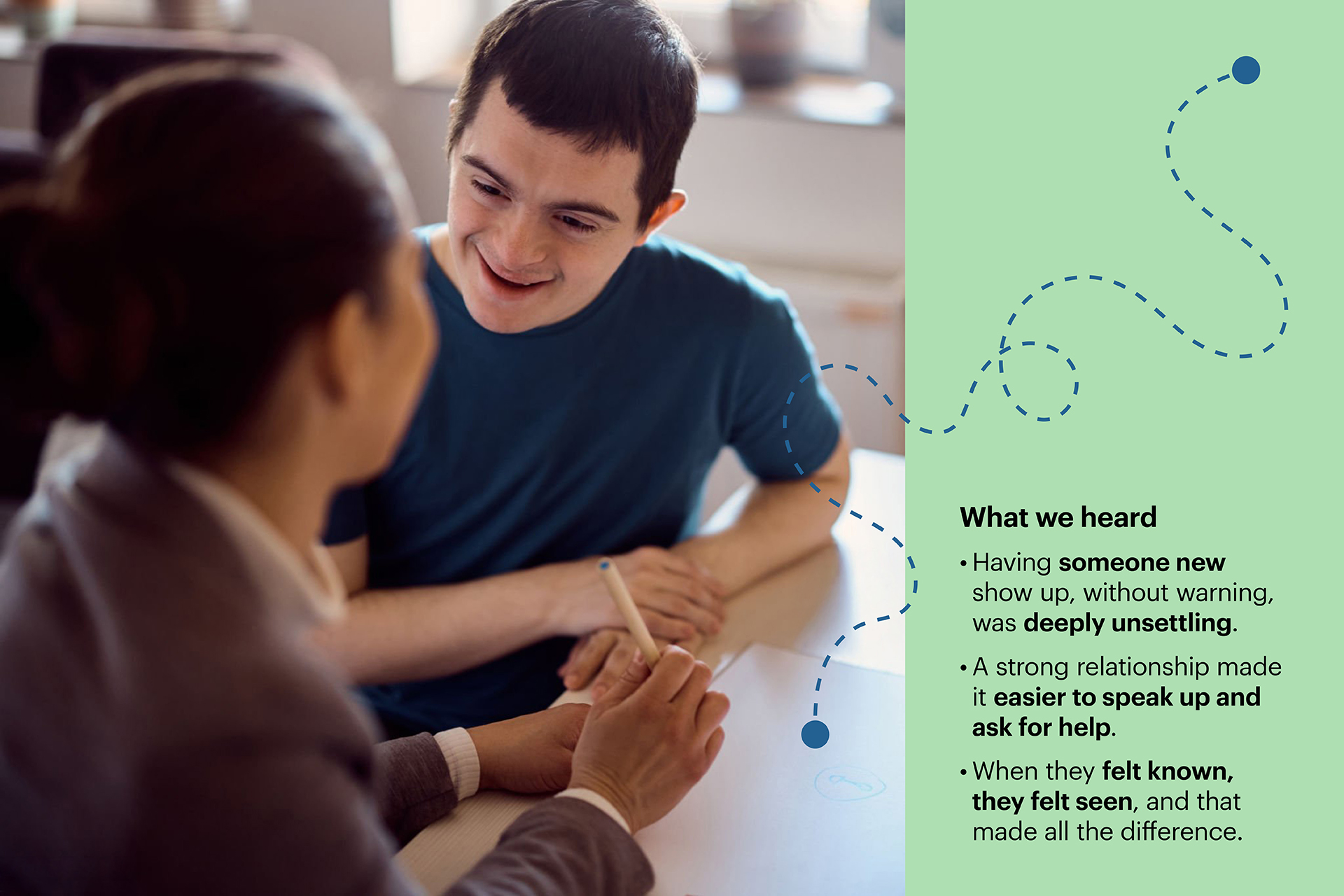
What we heard
Working with Annecto, we mapped the full experience people have with their services, from the first call to the final farewell. One thing stood out: the relationship between a customer and their support worker was the single biggest driver of satisfaction, stability and wellbeing.
People told us:
- Having someone new show up, without warning, was deeply unsettling.
- A strong relationship made it easier to speak up and ask for help.
- When they felt known, they felt seen, and that made all the difference.
In this model, the person delivering care isn’t just part of the system. They are the service.
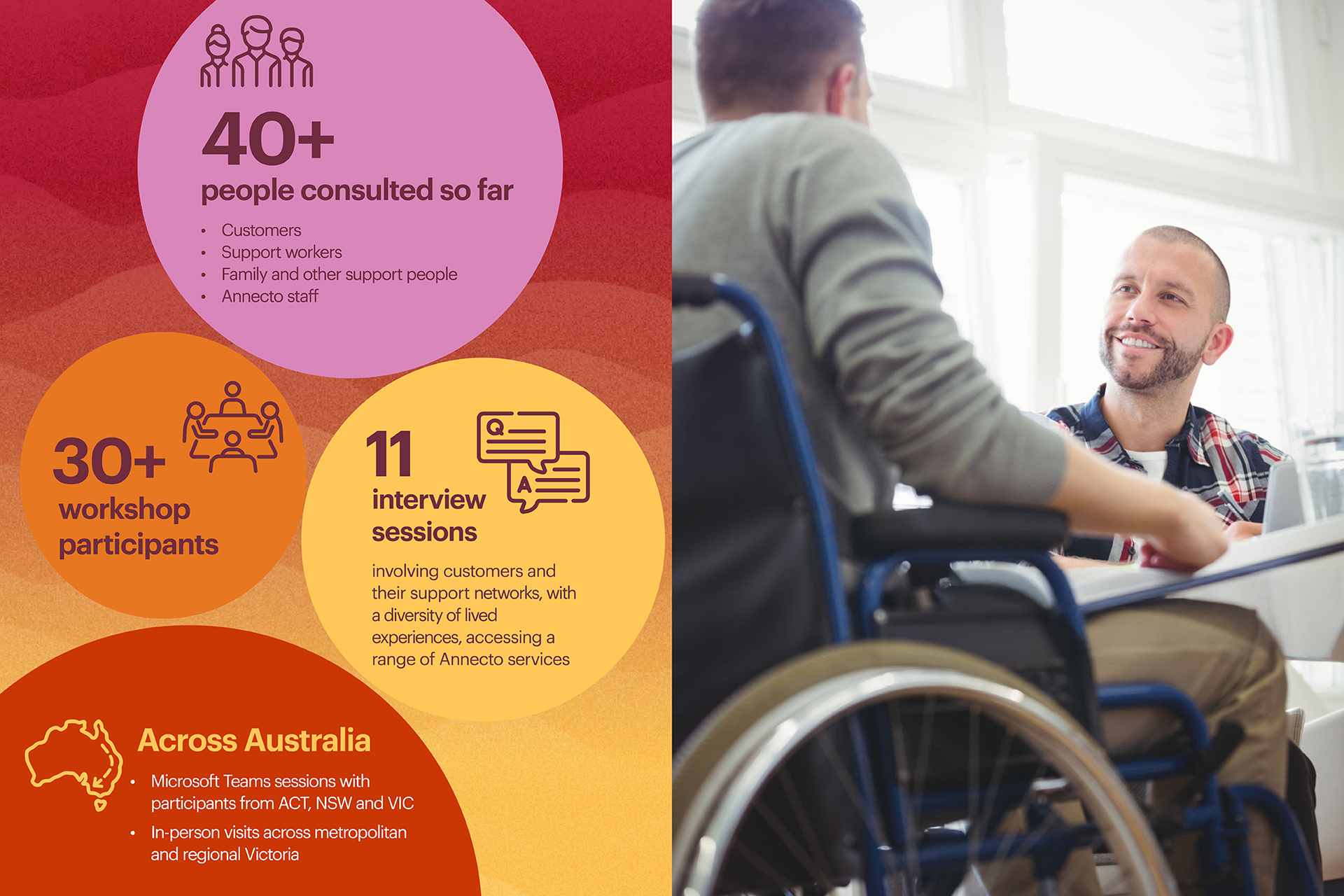
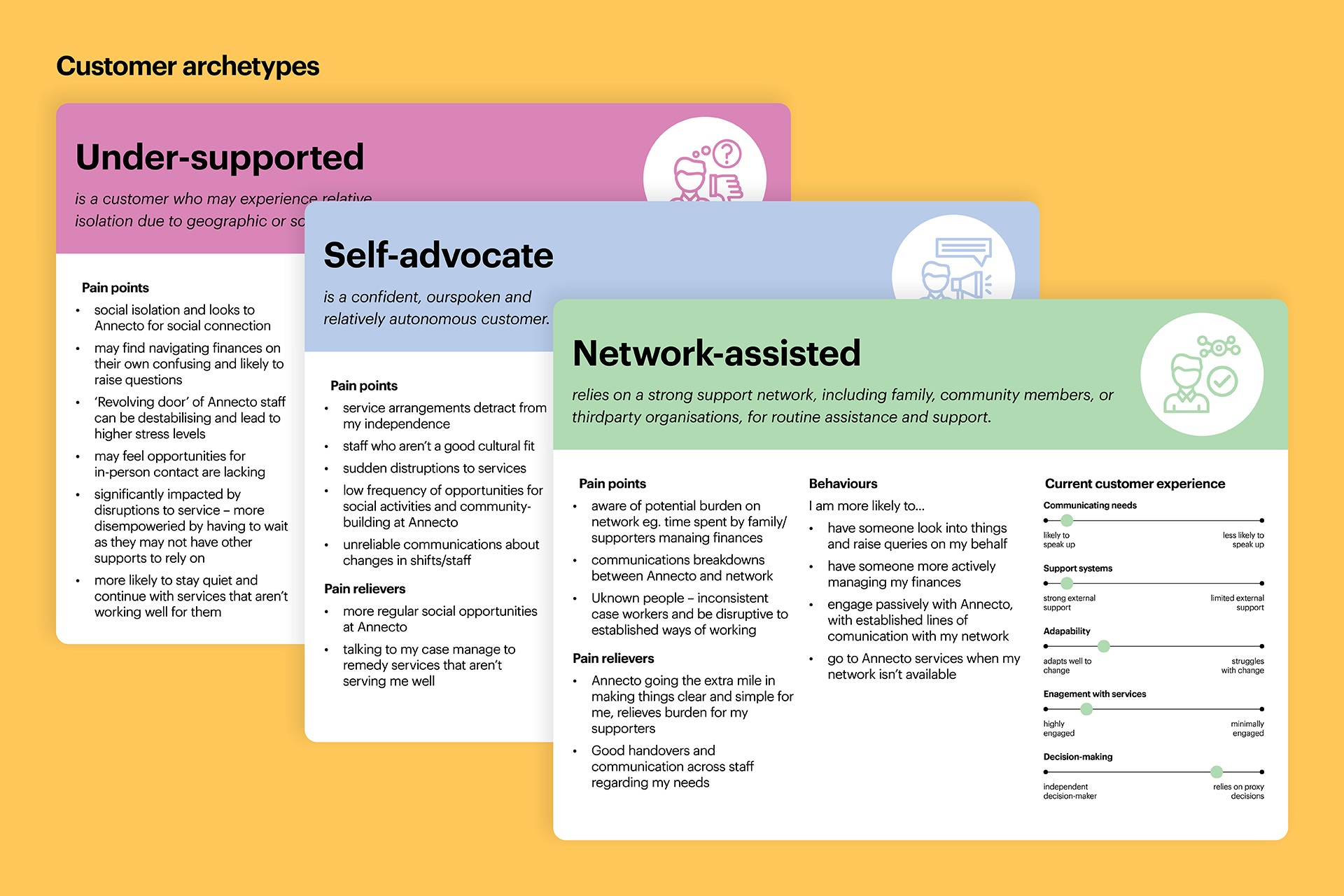
What this means for designing services
If we take this insight seriously, it changes how we think about care. It means:
- Prioritising staff consistency, not just rostering.
- Recognising the emotional effort it takes to build trust and giving staff time and support to do it well.
- Rethinking coordination so it protects relationships, not just calendars.
- Making feedback easier and safer, especially for people who might hesitate to speak up.
So, what if we flipped the model?
What if we stopped treating relationships as a by-product of good service and started treating them as essential infrastructure? Because no matter how efficient the system, people notice how they’re treated.
As Maya Angelou said so eloquently, in a quote I often revisit: “People will forget what you said, people will forget what you did, but people will never forget how you made them feel.”
And that’s what shapes their experience most. The next step in human-centred care isn’t just about digital tools, better data and AI. It’s about trust, connection and continuity.

